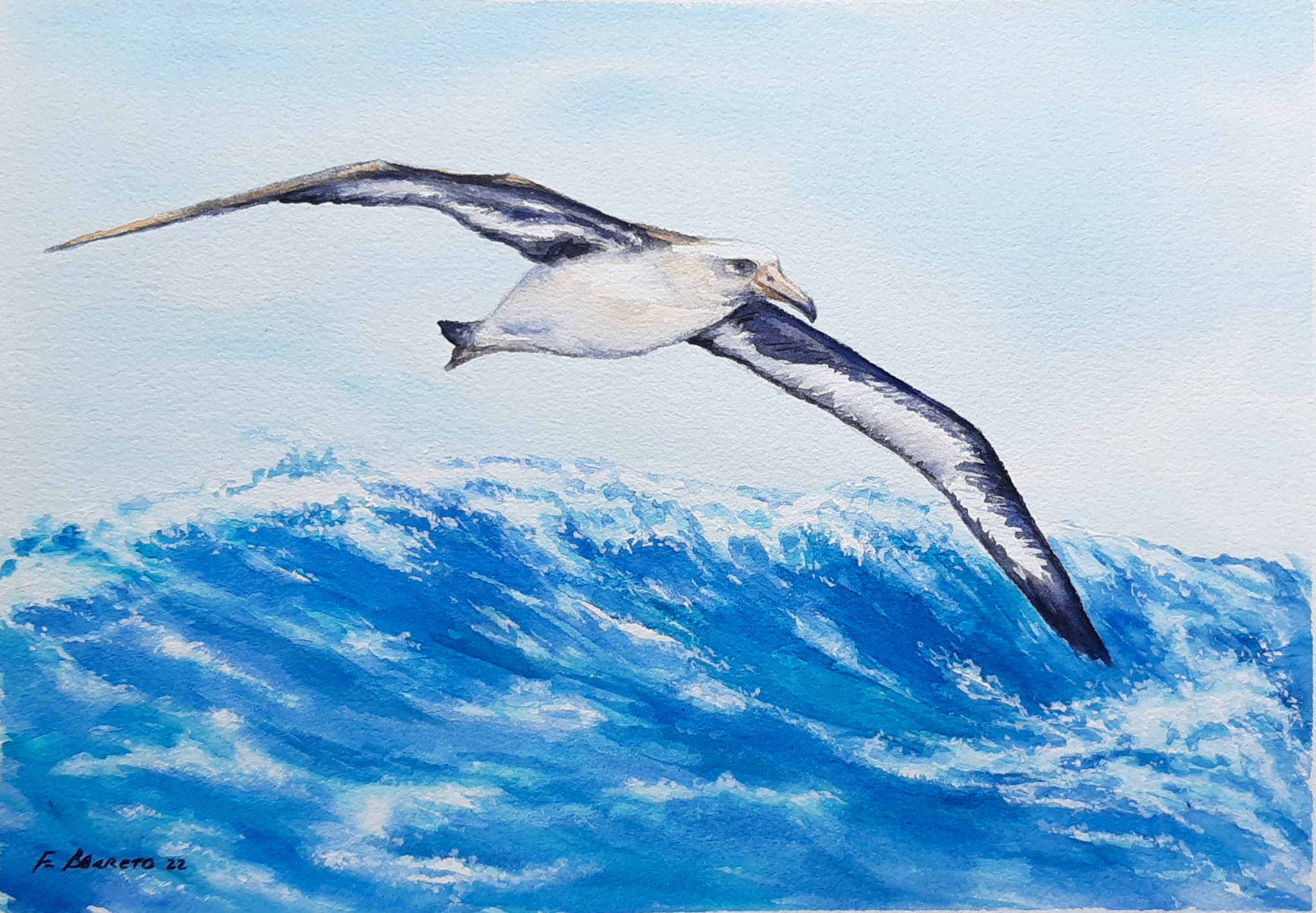 At risk to longlines in the Pacific: a Laysan Albatross at sea, painted by Flávia Barreto, Artists and Biologists Unite for Nature for World Albatross Day 2022, after a photograph by Kirk Zufelt
At risk to longlines in the Pacific: a Laysan Albatross at sea, painted by Flávia Barreto, Artists and Biologists Unite for Nature for World Albatross Day 2022, after a photograph by Kirk Zufelt
Eric Gilman (Fisheries Research Group, The Safina Center, Honolulu, USA) and colleagues have published open access in the journal Scientific Reports showing that setting baited fishing gear deeply and at night resulted in a 99% lower seabird catch rate (70% were albatrosses) than with lines set shallowly during the day in a in a temperate Pacific longline fishery targeting Albacore Tuna Thunnus alalunga.
The paper’s abstract follows:
“Marine megafauna exposed to fisheries bycatch belong to some of the most threatened taxonomic groups and include apex and mesopredators that contribute to ecosystem regulation. Fisheries bycatch is a major threat to the conservation of albatrosses, large petrels and other pelagic seabirds. Using data sourced from a fisheries electronic monitoring system, we assessed the effects of the time-of-day and relative depth of fishing on seabird and target species catch rates for a Pacific Ocean pelagic longline fishery that targets albacore tuna with an apparently high albatross bycatch rate. Using a Bayesian inference workflow with a spatially-explicit generalized additive mixed model for albacore tuna and generalized linear mixed regression models both for combined albatrosses and combined seabirds, we found that time-of-day and fishing depth did not significantly affect the target species catch rate while night-time deep setting had > 99% lower albatross and total seabird catch rates compared to both deep and shallow partial day-time sets. This provides the first evidence that night-time setting in combination with fishing deep reduces seabird catch risk and may be commercially viable in this and similar albacore tuna longline fisheries. Findings support evidence-informed interventions to reduce the mortality of threatened seabird bycatch species in pelagic longline fisheries.”
Read a popular account of the publication here.
Reference:
Gilman, E., Evans, T., Pollard, I. & Chaloupka, M. 2023. Adjusting time-of-day and depth of fishing provides an economically viable solution to seabird bycatch in an albacore tuna longline fishery. Scientific Reports 13, 262. doi.org/10.1038/s41598-023-29616-7.
17 May 2023

 English
English  Français
Français  Español
Español